Michael Nystrom: The Secret World of Central Banks
The Secret World of Central Banks
by M.A. NystromEditor www.bullnotbull.com
www.dailypaul.com
Today, all eyes were on the Federal Reserve: How it would respond to the recent turmoil in global financial markets? Would it lower rates, and if so, would it do any good?
By the time you read this, the Fed's decision - made in secret - will have already been announced. Hundreds of news articles and blogs will argue over its wording and meaning. Was it dovish or hawkish? Discussed ad nauseam will be: what the policy statement does or does not clarify, what it leaves room for in the future, what it means for the economy, housing, jobs, and the prospects for recession or recovery.
What will not be discussed is the powerful role played by central banks themselves.
Central Banks = Centralized Economic Planning
If you thought that centralized economic planning disappeared with the fall of the Berlin wall in 1989, think again. Eight times each year, a group of twelve men meet to make secret decisions that have a profound impact on the US and global economies. None of these men are elected. Their meetings are closed to the public. Even members of the US Congress and the Senate Banking and Finance Committees are barred from attending, or even knowing what is discussed. No detailed account of arguments or discussions is ever made public. Listen to Congressman Ron Paul on the secrecy of the Fed:
In some parts of the world, this might be called a cabal. Here it is called the Federal Reserve Open Market Committee (FOMC). Regardless of what you call it, it is profoundly unfair to the majority of Americans. Eight of the representatives at today's meeting - the Chairman and the Board of Governors - are political appointees of the President. All twelve men are bankers. Their secret decisions - made eight times each year - affect whether or not you can get a loan, what your payment will be, whether the economy booms or sinks into recession, and therefore whether or not you'll have a job.
What the Fed says and what it does are two different things. Today, with the Fed's stated "focus on inflation," I am reminded of Richard Russell's January 4, 2007 edition of his Dow Theory Letters, in which he had a short analysis of central banks. Mr. Russell 83 is years old and has been watching the market for well over fifty (50!) years. He's one wise & curious dude (the last two his own words) who's been writing non-stop since 1958.
This is what Russell has to say about central banks in general:
CENTRAL BANKS - I get a kick out of all these central bank governors, both here and overseas, constantly warning us about the "terrible danger of inflation." What a bunch of snake-oil salesmen these guys are. It's the central banks themselves that are pumping out all that extra fiat money that is creating the inflation. It's like an AIDS carrier indulging in all the sex he can handle while simultaneously warning about the spread of the disease.
So what's it all about with these central bankers? Simple, they like their cushy jobs along with the perks, and the only thing they're worried about is that the world will get wise to the central bank/fiat money racket, and maybe kill the beast. In other words, the central banks are afraid that voters will finally get rid of the whole private money business along with its nonstop production of intrinsically worthless fiat money.
You see, a real headwind of inflation would anger the public, in which case a few intelligent journalists might start putting the blame where it belongs - on the central banks, not the least of which is our own Federal Reserve. No, too much inflation, surging inflation, would be dangerous - it might expose the Fed and the central bankers for what they are - engines of inflation. When you've got a great racket going, like taking control of a nation's money, you want to protect that racket.
So its no wonder that the governors of our Federal Reserve take turns "warning us" about inflation while simultaneously telling us that "they'll keep everything under control." It's enough to cause this editor to "throw up his cookies." The curse of the Fed - it keeps going on and on and on. These freebooters know how to protect their racket. Create inflation, hide the evidence (as they did when they hid the figures on the broad M-3 money supply) and bravely act as our "protectors and saviors." Where was Congress when the Federal Reserve was first approved in 1913? Answer - At the same place it was when Congress handed over to President Bush the power to make war. End of that Russell rant. Whew!
Richard Russell hits the nail right on the head. You won't hear about this in the mainstream media anytime soon. Unlike the MSM, Richard Russell is independent - beholden to no advertisers. He can say what he wants; he is free to speak the truth.
Will the public ever wake up to what is going on with our money supply, and "finally get rid of the whole private money business along with its nonstop production of intrinsically worthless fiat money?" The first step towards that goal is awareness.
Since the Fed is worried about excessive inflation - which it has been creating itself, perhaps it is time for it to create a little deflation, i.e. monetary destruction. By limiting the supply of credit, assets that rely on ever increasing amounts of credit creation begin to lose value or disappear altogether. For those of you who think that deflation is impossible, I direct you to one of the most profound comments ever to appear on Bull! Not bull:
I am fascinated by the common perception that the Federal Reserve is a proven non-stop inflation machine. Inherently, the Federal Reserve uses inflation and deflation to whipsaw the average bystander out of his savings. I don't see how one economic machination is more favored over the other when the goal is to ensure that the public's savings ends up in the accounts of the shareholders of the Federal Reserve System.
Think about it. And stay tuned.
Labels: central banks, FED, fiat money, Richard Russell, Ron Paul















![[Most Recent Quotes from www.kitco.com] [Most Recent Quotes from www.kitco.com]](http://www.kitco.com/images/live/t24_au_en_usoz_6.gif)
![[Most Recent Quotes from www.kitco.com] [Most Recent Quotes from www.kitco.com]](http://www.kitco.com/images/live/au_go_0030_ny.gif)
![[Most Recent Quotes from www.kitco.com] [Most Recent Quotes from www.kitco.com]](http://www.kitco.com/images/live/au_go_0365_ny.gif)
![[Most Recent Quotes from www.kitco.com] [Most Recent Quotes from www.kitco.com]](http://kitconet.com/charts/metals/silver/t24_ag_en_usoz_4.gif)




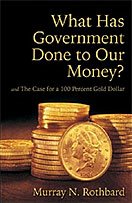

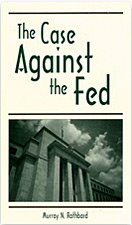

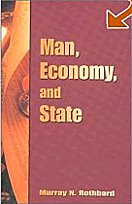

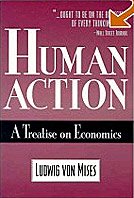
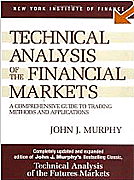





2 ΣΧΟΛΙΑ (COMMENTS):
http://www.thestreet.com/s/fed-ecb-respond-to-credit-crunch/newsanalysis/wallstreet/10373298.html?puc=_googlen?cm_ven=GOOGLEN&cm_cat=FREE&cm_ite=NA
Να σαι καλά βρε χρυσοθήρα.
Αν και στο βασικό σου πιστευω περι sound money διαφωνώ(συζητιέμαι βέβαια), έχω μάθει αρκετα απο το μπλογκ σου σαν ένας amateur που είμαι και σε ευχαριστώ γι αυτό ;).
Επι της ειδησης τώρα, περιεργο που το FED συνεχίζει να πληθωρίζει το δολλαριο τη στιγμή που αυτή την εποχή πληθωρίζεται απο μόνο του...
Θα έλεγα οτι είναι αδύνατον να αντιδράσουν πάλι παίρνοντας τις χειρότερες δυνατον αποφάσεις αλλά κατι φορές η ιστορία όντως επαναλαμβάνεται σαν φάρσα.
Οσον αφορά την ΕΚΤ με σοσιαλιστες στο τιμόνι, ξέρουμε ποιες θα είναι οι προτεραιότητές της (βλ τόνωση ανεργίας κλπ), ή νέα δεξιά(χαχα) οψη της γαλλίας, η Γερμανία, και η Ιταλία φαινεται να συμφωνουν μια χαρά σε αυτό. Η γηραια ήπηρος μετά από 10 αιώνες μαλακίας θα συνεχίσει να μαλακίζεται.
Αρα συνεχιζουμε να φορτώνουμε το φορτηγο που έλεγες με το μεταλλο της ελευθερίας.
περιεργο που το FED συνεχίζει να πληθωρίζει το δολλαριο τη στιγμή που αυτή την εποχή πληθωρίζεται απο μόνο του...
ο Richard Russell εδώ και μερικά χρόνια γράφει ότι η FED έχοντας να διαλέξει μεταξύ inflation και deflation σαφώς προτιμά το πρώτο καθώς σε deflation η οικονομία παραλύει. Αυτή την άποψη την εκφράζει με τον εξής αμίμητο τρόπο:
...INFLATE OR DIE!
Post a Comment
<< Home